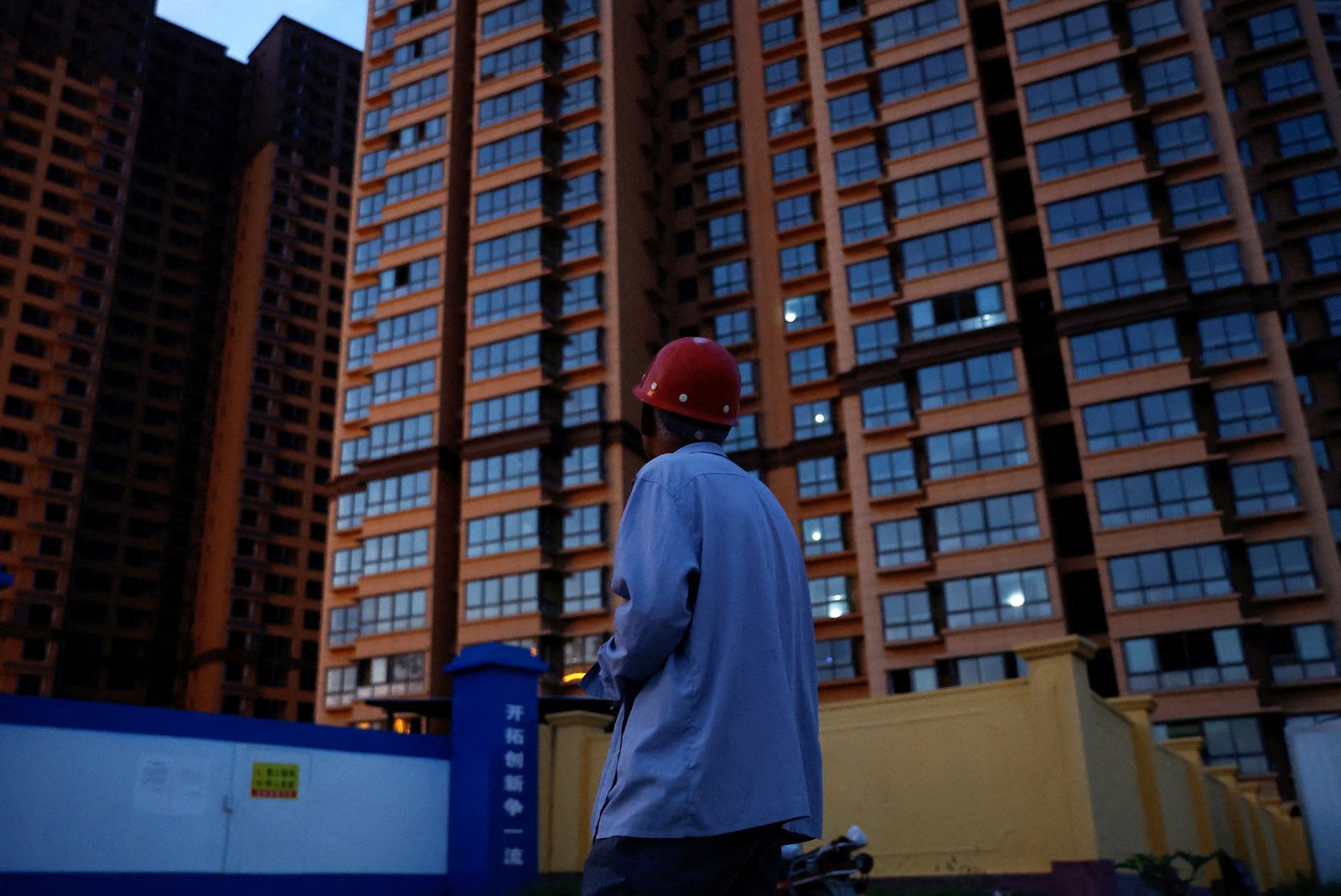BEIJING, March 18 (Reuters) – China’s fragile housing market opened this year with slower declines in property investment and sales, buoyed by government efforts to arrest a protracted downturn in the sector, however, analysts were wary of calling an end to the downturn just yet.
Property investment in China fell 9.0% year-on-year in the first two months of 2024, compared with a 24.0% fall in December 2023, National Bureau of Statistics (NBS) data showed.
Property sales by floor area logged a 20.5% slide in January-February from a year earlier, compared with a 23.0% fall in December last year.
Hwabao Trust economist Nie Wen said real estate remains in a downtrend and that a smaller slowdown in investment is unlikely to change that with developers still struggling for cash flow.
“But the phase when property had the greatest negative impact on the economy should have passed, and it needs to be seen when the sector will bottom out,” Nie said.
China has been ramping up measures to reinvigorate its fragile property sector after a regulatory crackdown on developer leverage led to a snowballing liquidity crisis.

However, market participants mostly remain unswayed with home buying and financing and construction starts for real estate firms continuing to fall.
“The future of real estate depends on whether investment in the three major projects – affordable housing construction, urban village renovation and emergency public infrastructure construction – can offset the decline in property investment and the release of accumulated upgraded home buying demand,” said Nie.
New construction starts measured by floor area plunged 29.7% year-on-year, after an 11.56% plunge in December 2023.
Funds raised by China’s property developers were down 24.1% on year after a 17.8% drop in December last year.
“More support for the property sector is still needed,” said economists at HSBC in a research note.
HSBC said further policies to remove home purchase restrictions in more cities and direct government support to boost public housing supply would help an eventual stabilisation in the sector.
($1 = 7.1970 Chinese yuan)
Sign up here.
Reporting by Qiaoyi Li, Liangping Gao and Ryan Woo; Editing by Sam Holmes
Our Standards: The Thomson Reuters Trust Principles.

